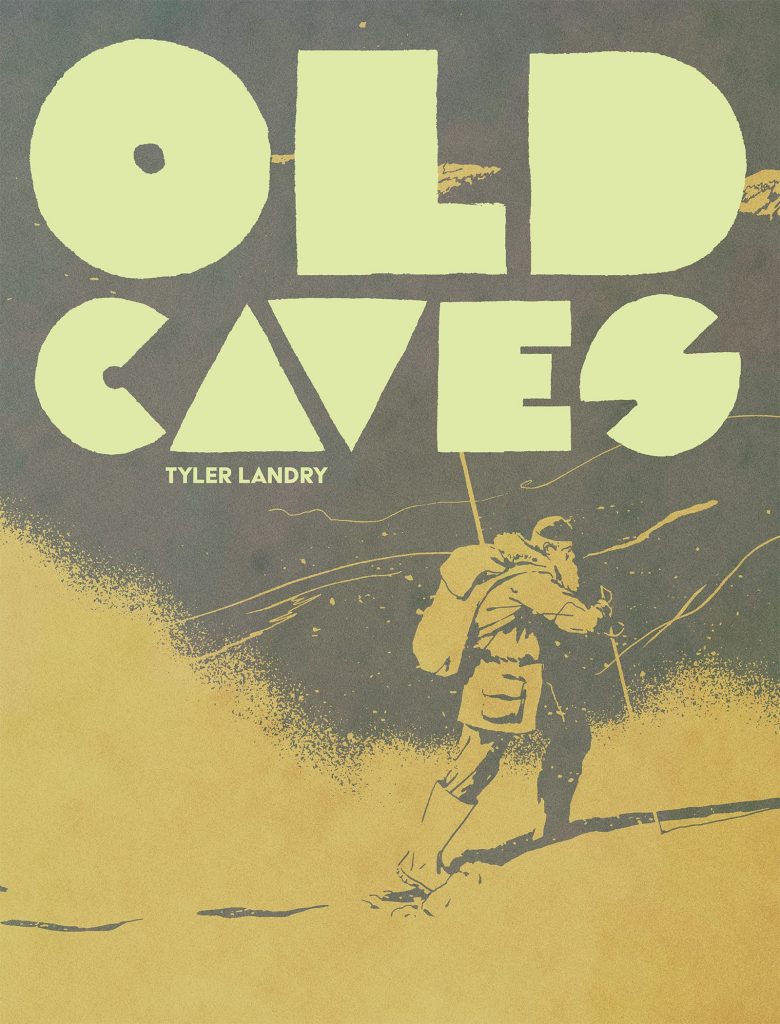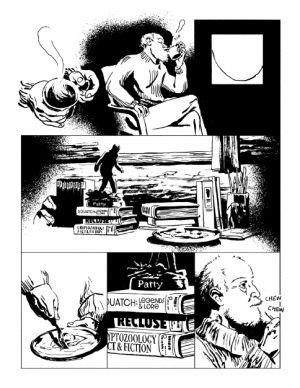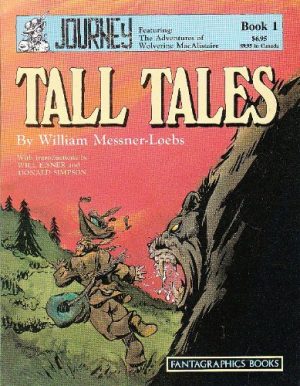Review by Ian Keogh
Old Caves is an unusual graphic novel for prioritising the beauty of landscapes over plot, leading to a contemplative experience. It follows a middle aged man living in an extremely remote location during winter. He seems to have a purpose, hints being dropped visually, but the early narrative consists of his diary entries and radio broadcasts, both primarily commenting on the prevailing weather. As his appears such a solitary existence, it comes as surprise halfway through to discover it’s actually a couple living in the log cabin.
Most artists working in black and white who give the technique consideration seem to have an affinity for the dark, creating shadows and mood with black ink. Tyler Landry does the opposite. Aside from the completely white panels presenting old joke of a white wolf in a snowstorm, it’s rare that white, and by extension, brightness is prioritised to such a degree. Landry supplies silhouettes in white, and a few black marks, almost abstract to create the impression of animal tracks in the snow. There’s a memorable wordless image viewed from above of the man walking through the woods, the trees so simply created as thick black lines with a few shorter, thinner lines representing branches and twigs in winter. If you’re of the inclination, time and again you’ll pause during reading as another eye-catching depiction of nature catches the eye.
A few hints occur as to the wider world, but a revelation well into Old Caves reveals two separate narratives have been presented, one in the present and one in the past. By this point the story has been broadened by the inclusion of snippets from letters kept and read by the protagonist, and it becomes a meditation on an individual’s necessities. A clever comparison ties the whole together satisfyingly, but this isn’t cheery comfort reading. Eventually Landry concludes people are what they are and for better or worse there’s no changing that.





